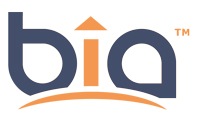
2017 Project Management Trends
As with everything, the field of project management is changing. Here are some of the latest trends we are seeing in project management for 2017.
Agile Project Management
Software development companies have been using Agile Project Management for some time. In a race to follow the latest trend, many other types of organizations are trying Agile Project Management. Many companies are trying Agile for their product and service development projects but research indicates they are having mixed levels of success. They are finding that a pure Agile approach for non-software projects is proving difficult. Highly successful projects use a variety of tools and this includes a hybrid of various project management approaches. The great challenge is getting the right type of training and coaching from consulting firms that understand more than just pure Agile Project Management.
Entrepreneurial Project Managers
More and more project managers are feeling constrained by the fixed methodologies they’ve been prescribed. As well, organizations are now looking for project managers that can think quickly, make decisions rapidly and manage within a framework that includes a “basket of tools.” These project managers, are entrepreneurial, taking the best of the best. They think on their feet. They manage change rather than allowing change to manage them. Part of this trend is for organizations to develop competencies for the entrepreneurial project manager and then hire/coach individuals to align with these new competencies.
Risk Management
Assessing project risk can prevent projects from failure. It saves organizations potential, significant embarrassment as well as time and money. The trend in risk management is to apply it to all types of projects, whether managed through Waterfall, Agile or a Hybrid Project Management approaches. While there may always be some unanticipated things that will occur, most of these, through sound risk management, can be managed, rather than reacted to.
Strategic Project Management Offices
Traditional PMO’s are steeped in their practices, their methodologies, their tools, their templates and so on. With the onset of new approaches to managing projects, such as: Waterfall, Agile or Hybrid Project Management, PMO’s are lagging the change. For them, transitioning to the current trends in project management, is daunting. However, while it may seem daunting, it also presents a great opportunity to realign their direction and review how to manage, train and support their organization’s projects. Generally, the PMO must morph into a “Strategic Project Management Office,” with organizational PMO capability. Its focus is to ensure that the organization’s projects align with the organization’s strategic business objectives. These “Strategic Project Management Offices” or “SPMO’s,” can help position and platform the career paths of project management leaders, for building the skills and experiences needed for success in different leadership positions.
Next Generation Project Management Training
Trends in project management training are towards practical training that focuses on global best practices and combines the best of Waterfall and Agile/Hybrid approaches to the management of projects.
The training must focus on more than, ensuring project managers, scrum masters, sprint team members, and so on, have a clear understanding of terms and artifacts. It must engage them in real experiences that create a new level of understanding of how to manage the next generation of projects.
This training will provide a high return on investment for organizations as it will increase their project’s effectiveness and efficiency while ensuring that projects can successfully meet all business and customer requirements.


